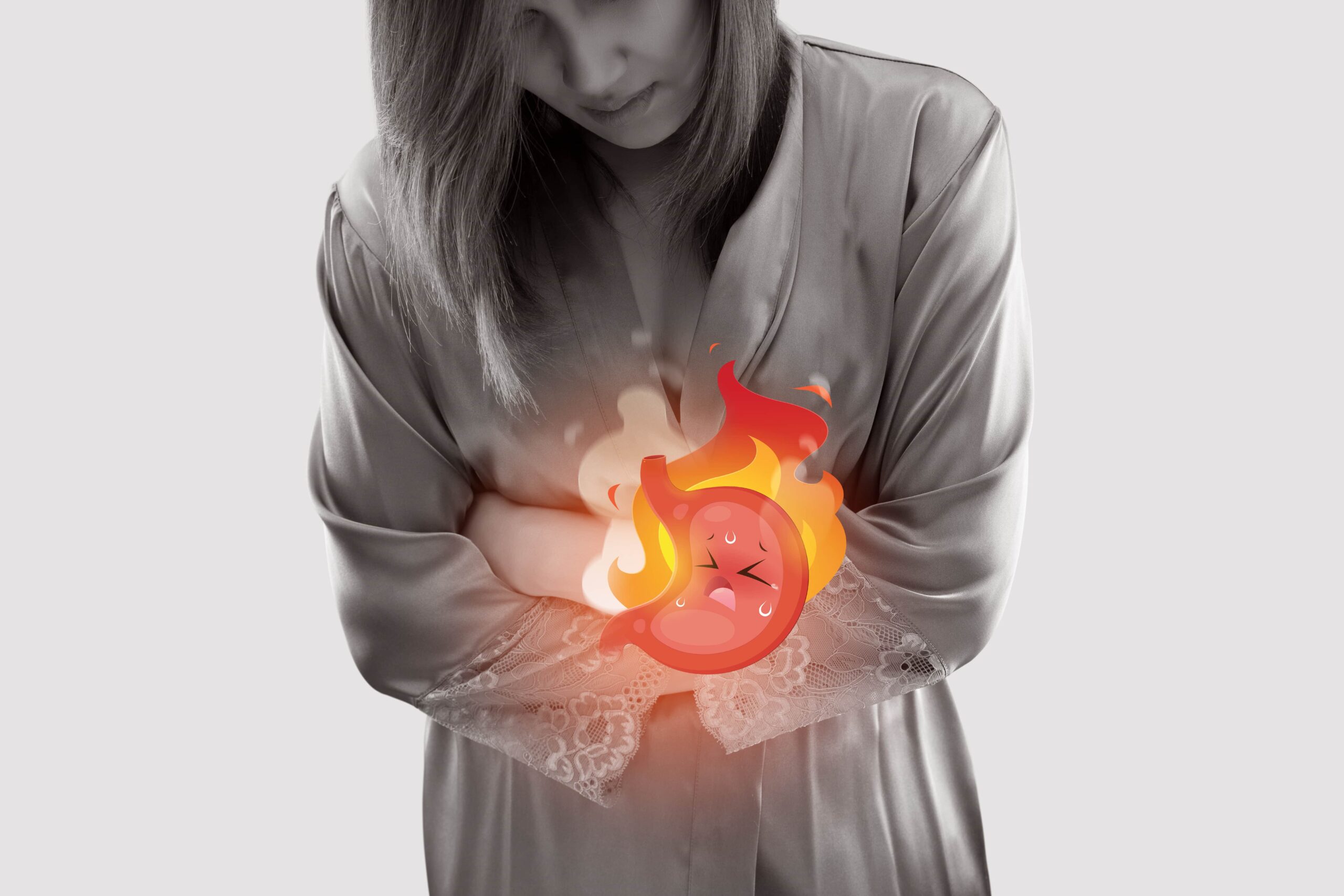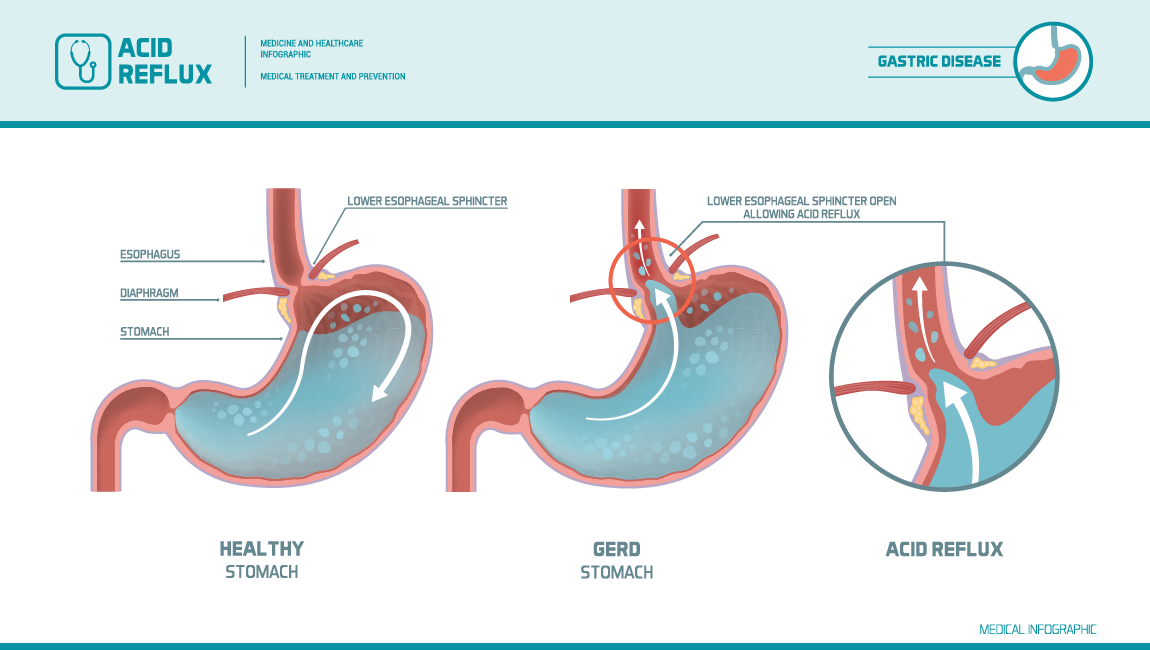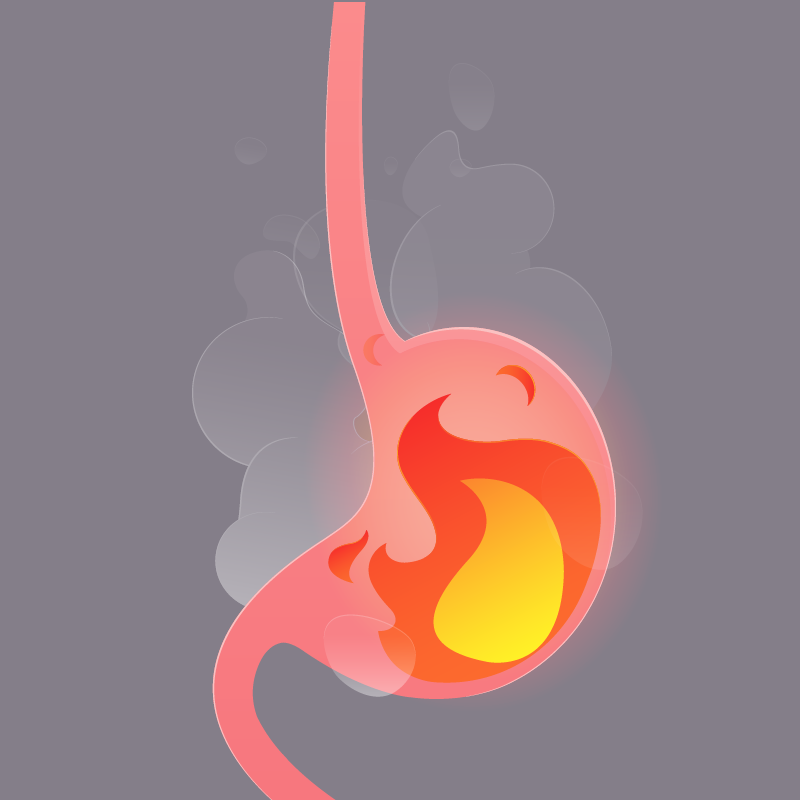El esfínter transitorio se relaja con demasiada frecuencia, permitiendo que el ácido escape
Aumento de la presión abdominal
Trastorno por vaciado gástrico
Peristalsis esofágica (aquí es donde los músculos del esófago experimentan movimientos similares a ondas)
While some people are born with a weaker LES or get GERD due to related medical conditions, it is essential to note that certain types of medication, lifestyle choices, and exercises may be causing reflux. It's best to consult with medical professionals to figure out the actual cause of your symptoms.
Overeating/being overweight
Pregnancy
Smoking

The most common symptoms of acid reflux are acid indigestion and heartburn. The acid in the esophagus can make it spasm leading to a burning sensation in the chest, between the ribs, or below the neck. The pain may radiate through the chest, up into the neck and throat. You may notice that you frequently burp or feel bloated. The most common symptoms are:
Burning sensation in the chest after eating
Chest pain
Difficulty swallowing
Feeling a lump in your throat
Frequent regurgitation of food
Bitter taste in your mouth
It is considered an emergency situation if you're vomiting, having difficulty swallowing, or breathing. If you experience any of these symptoms, seek medical attention immediately.

Lifestyle Changes - In many cases of mild acid reflux, changing your diet and taking over-the-counter antacids can reduce symptom severity. Other choices like losing weight, quitting smoking or drinking alcohol, altering eating habits, and maintaining a healthy sleeping schedule can help.
Drug Therapy - Over the counter, antacids are commonly recommended for symptom flare-ups. Your doctor may prescribe prescription drugs that reduce the amount of acid production. Drugs effectively reduce the irritation of the esophagus and relieve symptoms but may not be a long-term, lasting solution. Acid management works in the body and takes away the burn with medications, but it does not solve the problem.
Surgery - If you're tired of taking medication to migrate symptoms that could potentially cause other health issues, surgery may be the best solution. A surgery known as Laparoscopic Nissen fundoplication is the current standard for treating GERD. The procedure essentally reinforces the entirety of the lower esophageal sphincter. During the operation, the esophageal hiatus is made narrow by sutures to either treat or prevent a concurrent hiatal hernia. Afterward, the patient's upper stomach, or fundus, is made to encase the lower portion of their esophagus and secured by stitches. Many patients can stop taking related medications after the surgery as well, and the rate of patient satisfaction is objectively higher than those who stick to medication regimens.

Dr. Feiz specializes in digestive surgery and weight-related complications. He is a board-certified bariatric surgeon experienced in performing Laparoscopic Nissen fundoplication. To find out more about GERD and find a long-term solution for your specific symptoms, call us today via the phone number on this page.